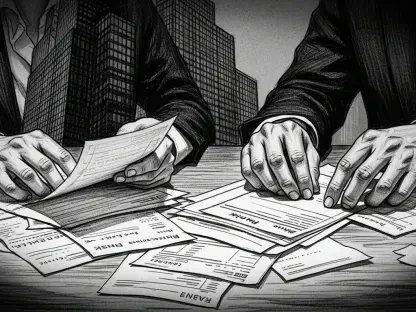The continuous imposition of increased tariffs and the evolving global trade policies have significantly impacted the homeowners insurance market, with profound implications for both personal and commercial policyholders. The rising costs of imported goods, including essential materials such as automotive parts and construction supplies, directly lead to higher claims expenses. This situation compels insurers to consider escalating premiums to counterbalance the increased expenses. For instance, recent measures include a 90-day suspension of tariffs against several countries and the European Union while concurrently raising tariffs on key Chinese imports that homebuilders heavily rely upon, affecting the entire industry.
Impact on Claims Expenses
Cost Increases from Tariffs
The direct consequence of these tariffs is the surge in prices for imported goods. Key materials and products necessary for home construction and repairs, such as steel, aluminum, and various construction materials, have seen significant price hikes. Homeowners and builders alike face higher costs when repairing or replacing damaged property, directly leading to ballooning claims expenses for insurance companies. For insurers to remain financially viable, they must adjust their premium rates upwards to offset these growing costs.
Increased claims expenses also ripple through other areas of the insurance market. As raw materials and auto parts become more expensive, the cost of automobile repairs escalates, influencing auto insurance claims. Similarly, the broader economic impact, including general inflation driven by tariffs, affects a wide array of goods and services, indirectly putting pressure on insurance costs. Across the board, the financial strain from tariffs forces insurers to reassess and increase their premiums to maintain their economic robustness.
Inflation and Tariffs
Tariffs contribute to broader economic inflation, which in turn affects various facets of the insurance industry. Higher production costs lead to increased prices for goods and services, including labor costs associated with construction and repairs. This inflationary pressure means higher costs for settling claims and can further erode the real value of the sums insured. Homeowners, therefore, face a double hit: higher premiums, combined with the potential for higher out-of-pocket costs for repairs or replacements.
Moreover, inflation affects both commercial and homeowners insurance rates. Businesses relying on global supply chains experience increased insured values as the costs of materials and products rise. These businesses must then adjust their insurance policies accordingly, often resulting in higher premiums to cover their elevated risks and potential losses. This interconnected impact underscores how macroeconomic factors like tariffs and inflation profoundly influence the insurance landscape.
Role of Insurance Agents
Educating Policyholders
In this complex and evolving environment, the role of insurance agents becomes even more crucial. Agents must proactively educate policyholders about the connection between tariffs and insurance costs. This involves explaining the reasons behind premium hikes and helping clients understand how global trade dynamics impact their coverage. Providing clear, accessible information empowers policyholders to make informed decisions in managing their insurance needs.
Insurance agents should also encourage regular policy reviews beyond the typical renewal times. These reviews can identify potential gaps in coverage that may arise due to changing costs and economic conditions. By recommending strategic adjustments, such as verifying coverage limits, suggesting higher deductibles, and considering necessary policy endorsements, agents can help clients maintain adequate coverage while managing increased premiums effectively.
Strategic Planning and Negotiation
Strong relationships with insurers are vital for agents navigating this challenging landscape. By maintaining robust communication with insurance providers, agents can negotiate favorable terms and leverage data-driven insights to advocate for policyholders. Using analytics and up-to-date market information, agents can support their requests for more competitive premiums, helping their clients manage the impact of rising costs.
Strategic planning is another critical function that agents must adopt. By developing tailored plans for individual clients, agents can address specific needs and mitigate the economic pressures from tariffs. This includes evaluating the potential benefits and drawbacks of various policy adjustments and advising clients on the most effective insurance strategies. Such proactive involvement ensures that policyholders receive comprehensive coverage without excessively burdening their finances.
Broader Implications and Moving Forward
The ongoing implementation of increased tariffs and evolving global trade policies have notably impacted the homeowners insurance market. Both personal and commercial policyholders are feeling the effects. As the cost of imported goods, like automotive parts and construction supplies, continues rising, insurers face higher claims expenses. This scenario pressures them to consider increasing premiums to offset these heightened costs. Recently enacted measures involved a 90-day suspension of tariffs against several countries and the European Union. Simultaneously, tariffs on crucial Chinese imports, heavily depended on by homebuilders, were raised. These changes significantly affect the entire industry. The overall impact results in a progressively expensive insurance market that reflects the increased cost of goods and the complex landscape of international trade regulations. Both insurers and policyholders must navigate this evolving environment, adapting to the financial pressures and uncertainties brought by these global trade shifts.









